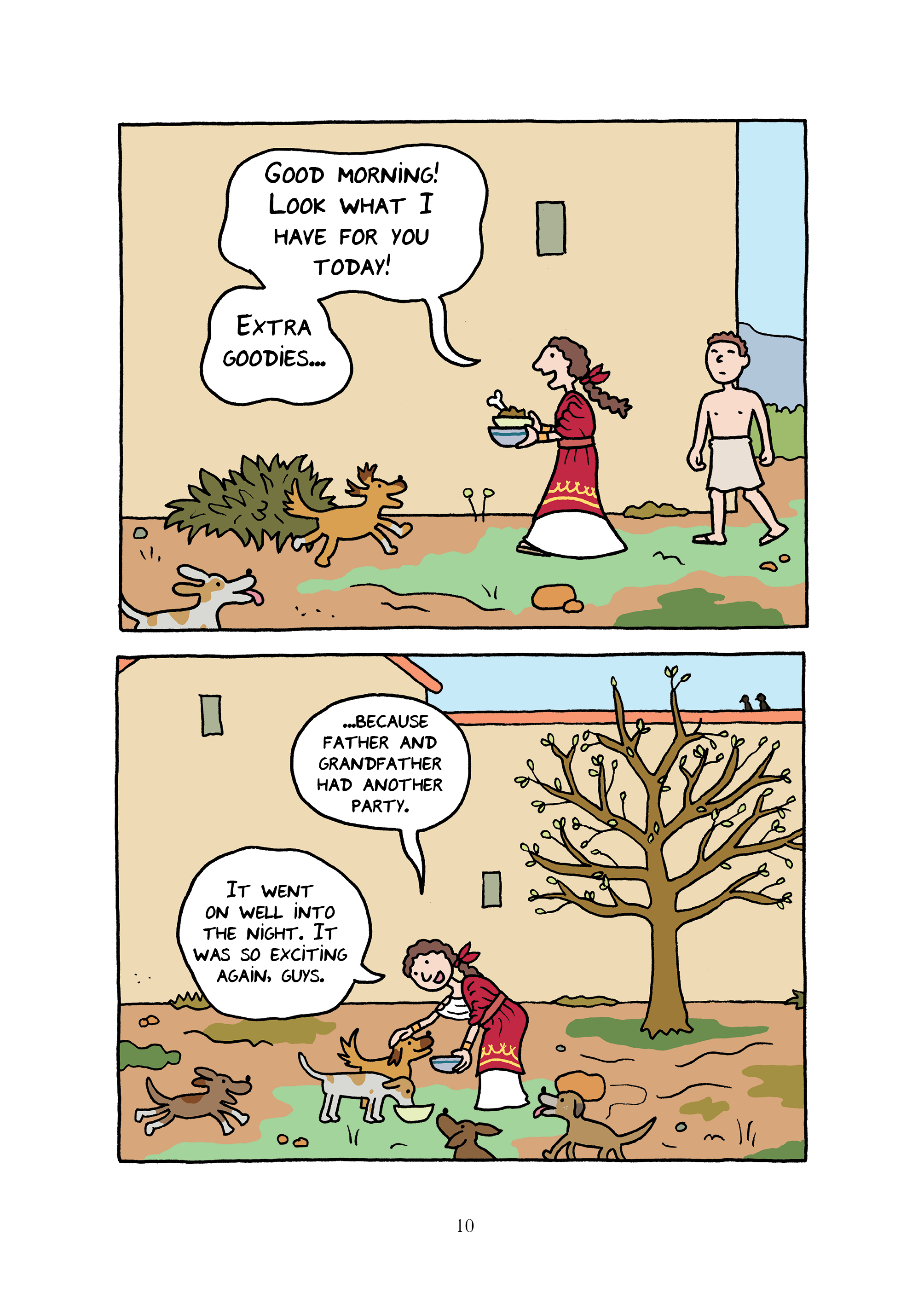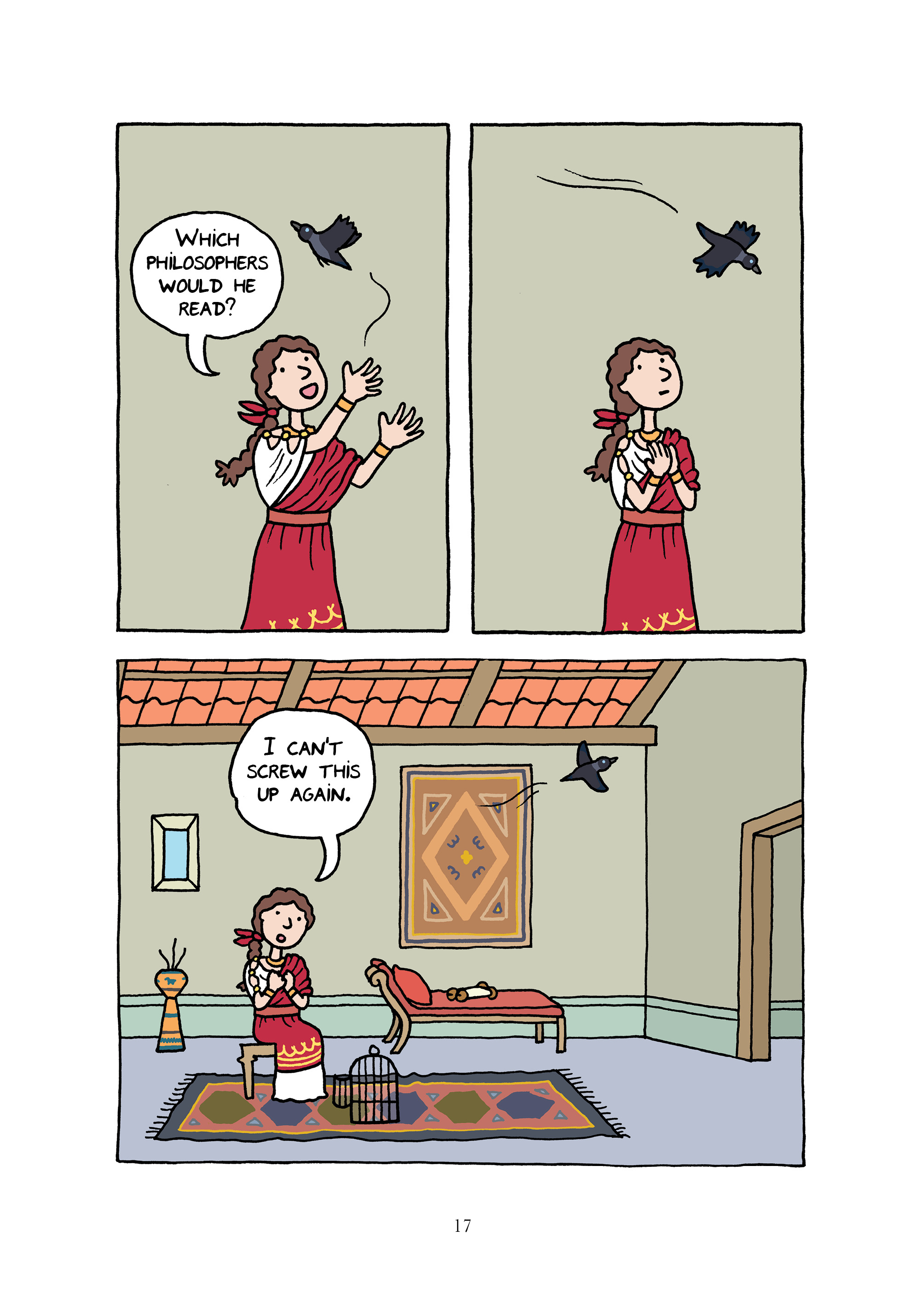It is the 4th century B.C.E in Greece. Hipparchia is about to marry the rich son of a family friend when she meets Crates. As the wedding day approaches, Hipparchia becomes increasingly captivated by the views and way of life of this strange philosopher who lives on the streets. Gradually she starts to realize that the safe, comfortable, and cushioned life of luxury that has been mapped out for her is actually one of emptiness, and spiritual imprisonment.
Crates and Hipparchia came to develop a central strand of the so-called “Cynical” movement in Athenian philosophy – so-named for the dog-like tenacity or canine fury of their rejection of all conventional values. One of their fundamental principles was that we can only attain true happiness if we are independent of material possessions and social position.
Hipparchia was a strong woman who had the courage to live by her own ideals, despite all the prevailing prejudices of her time. Her story continues to speak to ours.
Crates and Hipparchia came to develop a central strand of the so-called “Cynical” movement in Athenian philosophy – so-named for the dog-like tenacity or canine fury of their rejection of all conventional values. One of their fundamental principles was that we can only attain true happiness if we are independent of material possessions and social position.
Hipparchia was a strong woman who had the courage to live by her own ideals, despite all the prevailing prejudices of her time. Her story continues to speak to ours.
Barbara Stok
Barbara Stok is an award-winning comic artist from The Netherlands. She briefly studied at the Fotoacademie school of photography in The Hague and worked as a journalist before becoming a cartoonist and illustrator, working for newspapers and for a children’s TV show. Her early work was autobiographical in nature, constantly questioning the meaning of life and right and wrong, always with a light touch. She has spent the last few years studying the classical philosophers and taking philosophy classes at university. Her critically acclaimed graphic novel Vincent (SelfMadeHero, 2012), about the life of Vincent van Gogh, has been published in more than 20 countries. Stok’s fascination with philosophy led her to write The Philosopher, the Dog and the Wedding, the result of five years of research.

Reviews
"Stok (Vincent) paints an inviting and knowledgeable portrait of one of Greece’s more obscure philosophers in this graphic biography."
— Publisher's Weekly
"Hipparchia is a gem of a character, and one that many women will be able to look up to; someone who defied all convention and restraint and lived on equal terms with men."
— Broken Frontier





